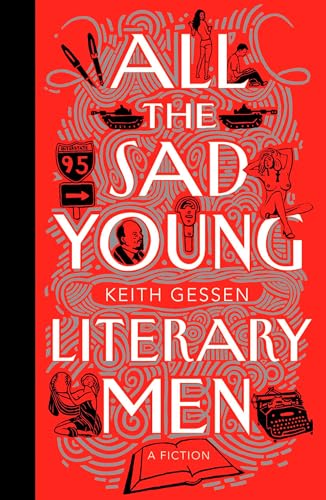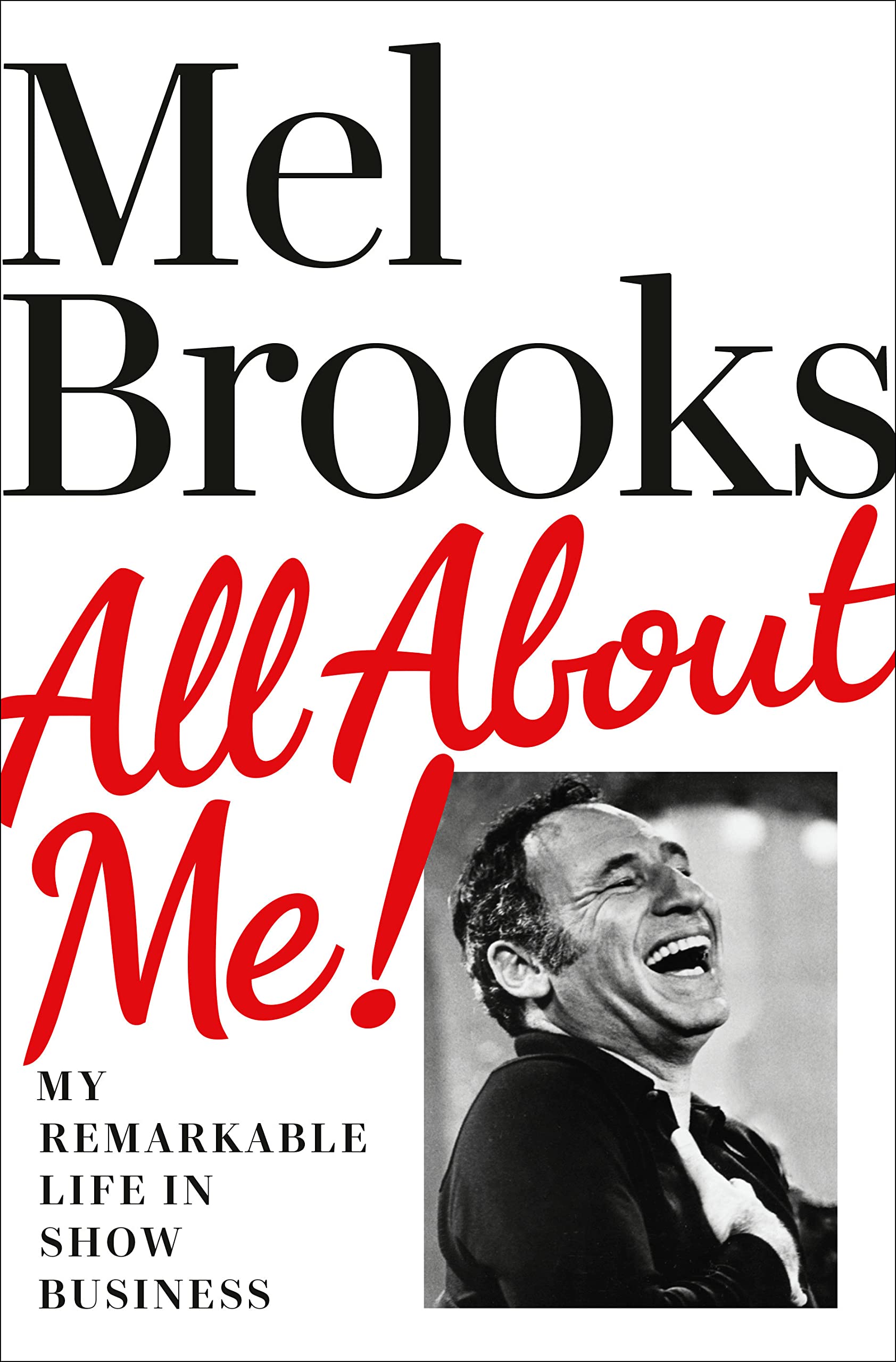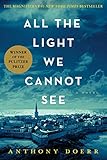 In a piece for The Millions last week, I used a single sentence from Anthony Doerr’s bestselling novel All the Light You Cannot See to demonstrate Doerr’s mastery of narrative prose. I was able to build an entire essay around one sentence chosen at random from Doerr’s novel because his prose is so consistently good that I could have picked essentially any sentence from the book and written the same essay.
In a piece for The Millions last week, I used a single sentence from Anthony Doerr’s bestselling novel All the Light You Cannot See to demonstrate Doerr’s mastery of narrative prose. I was able to build an entire essay around one sentence chosen at random from Doerr’s novel because his prose is so consistently good that I could have picked essentially any sentence from the book and written the same essay.
But the exercise got me wondering: If I looked at the same line — the first sentence of the fifth paragraph on page 40 — in other books, would it offer the same window onto the author’s style? I began scanning my bookshelves at home, pulling down favorite novels and reading the first sentence of the fifth paragraph on page 40.
Though hardly foolproof, my “Page 40 Test” turned out to be an instructive exercise. Stripping away setting, narrative, and character development afforded me an unusual pinhole view into the mind of a writer at work. Some writers displayed infelicities of diction or grammar that I might have missed at full speed, but that, under close examination, helped explain a vague unease I had long felt about the author’s work. Other writers, I found, expertly built their setting, narrative, and character development into every sentence, while still others seemed to lose the plot midway through.
A work of fiction is more than simply a collection of finely wrought sentences. Plot matters, as do the characters and setting. But by paying close attention to how a writer constructs sentences, we can begin to see how the larger structure of the novel is built. Here are some especially telling sentences I found at the start of the fifth paragraph on page 40 of five novels from my shelves at home. Feel free to add sentences from your own “Page 40 Tests” in the comments.
 The Complete Stories by Flannery O’Connor
The Complete Stories by Flannery O’Connor
“We ain’t got nothin’ but pullet eggs,” he said, fishing up another handful of beans.
One sentence, 15 words, and we are set down, firmly and indelibly, in a particular time and place. Given the dialect, this can be nowhere but the American South, and given what they are eating, and the apparent scarcity of it, it can only be the Depression years. City slicker that I am, I had to Google “pullet eggs.” They are eggs laid by a chicken less than a year old, meaning that they are unusually small. In our industrialized farming system, we rarely see pullet eggs, which are typically shipped off to the powdered egg factory.
But this sentence, which comes from the 1946 story “The Crop,” which O’Connor wrote while still a student at Iowa, is more than a sepia-toned portrait of a bygone age. The dialect is pitch perfect, and the verbal phrase at the end of the sentence displays O’Connor’s gift for masterfully inapt figurative language. One usually “fishes” an object from liquid or from an empty space (“He fished his cell phone from his pocket.”) It is just slightly off to say that someone is “fishing up” a “handful of beans.” Yet this wrongness is also exactly right. It gives the sentence its ring of authenticity and its voice, conveying the sense one has so often in O’Connor’s stories of a real person, an ordinary Southerner closely acquainted with the world she is describing, telling a tale.
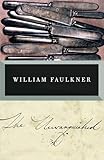 The Unvanquished by William Faulkner
The Unvanquished by William Faulkner
Then they stopped — Joby and Granny, and while Granny held the lantern at arm’s length, Joby and Loosh dug the trunk up from where they had buried it that night last summer while Father was at home, while Louvinia stood in the door of the bedroom without even lighting the lamp while Ringo and I went to bed and later I looked out or dreamed I looked out the window and saw (or dreamed I saw) the lantern.
Who else but Faulkner could get away with a sentence like this? Actually, I’m not sure he does get away with it. As is so often the case in Faulkner, things start out crystal clear and action-packed, and then, as if the author has taken one too many sips from the tumbler of bourbon he supposedly kept on his writing desk, he gets unstuck in time. The second half of the sentence is a jumble of competing images and time frames, with too many whiles, too many lamps and lanterns and people looking out windows or perhaps only dreaming they are looking out windows. And just as soon as you work out the chronology, things get slippery again: If Joby, Granny, and Loosh are digging up the trunk in the middle of the night, then who are Ringo and I?
But this is the man who wrote, in Requiem for a Nun, “The past is never dead. It isn’t even past.” So much in Faulkner is about the blurring of time and how our dream reality distorts, but also helps us make sense of, what we see with our own eyes. And all of Faulkner’s fiction, like this sentence, teems with life. Faulkner’s genius was that he could slip inside so many complex characters, but a part of the genius of his prose was that he let the messiness of life stay messy. It is possible to follow this passage — the dark night, the flickering lamplight, the narrator’s confusion about whether he saw or dreamed the lantern outside the window — but to do so you have to read carefully and recursively, piecing together clues the way the characters are doing. In other words, the only way to read a Faulkner sentence is to enter into it, become one more half-doomed character trying to make sense of it all.
 The Secret History by Donna Tartt
The Secret History by Donna Tartt
After class, I wandered downstairs in a dream, my head spinning, but acutely, achingly conscious that I was alive and young on a beautiful day; the sky a deep deep painful blue, wind scattering the red and yellow leaves in a whirlwind of confetti.
I love The Secret History, which remains the most accurate real-time portrait of my own generation of college students in the late 1980s, but I see in this sentence the root of the problems I have with Tartt’s later novels, both of which struck me as bloated and overwrought. The central drama of Tartt’s sentence is compelling and her imagery is original: the sky is “a deep deep painful blue” and the autumn leaves form “a whirlwind of confetti.” But what is up with that semi-colon? It does not, as semi-colons typically do, separate two independent clauses, nor does it function as a super comma linking a series of phrases that contain commas within them. It just floats there mid-sentence binding two tenuously related hunks of language, hoping it looks punctuationally sophisticated enough to ward off any questions about the sentence it is holding together.
Tartt could have replaced the semi-colon with a long dash or a plain old comma. The second half of the sentence still wouldn’t have meshed with the first, but at least the clash wouldn’t be so glaring. But a closer look at the sentence shows that syntactic coherence is the least of Tartt’s worries. How many characters have we seen in fiction wandering in a dream, their heads spinning? The next clause is even clunkier. First, Tartt has trouble articulating the quality of her hero’s consciousness. Is he “acutely” conscious? Is he “achingly” conscious? Hey, why not just use both? And what is it that our hero is so “acutely, achingly conscious” of? That he is “alive” and “young” on “a beautiful day” — three essentially empty vessels of descriptive cliché. This is the work of a writer several orders of magnitude less talented than the one who can turn a clear blue sky “painful” and conjure a “whirlwind of confetti” from a pile of dead leaves. That’s what that semi-colon is doing loitering there mid-sentence looking so guilty. It’s protecting the work of a gifted stylist from that of far more ordinary writer.
 All the Sad Young Literary Men by Keith Gessen
All the Sad Young Literary Men by Keith Gessen
All the women in Sam’s life italicized things.
Unlike the earlier Faulkner sentence, this one by Gessen demands little from its reader. This is a sentence, and a book, that can be read on an airplane. Yet the language is not merely functional, the way it might be in a novel by, say, John Grisham or Patricia Cornwell. Gessen’s prose is smartly observant. This sentence refers to a line Sam’s ex-girlfriend once said to him — “Really? That’s ambitious.” — but more generally it speaks to a passion, and a queasily ironic relationship to that passion, felt by the earnest Ivy Leaguers in Gessen’s book who are testing out the ideals they picked up in college in the laboratory of the real world.
This brand of easily accessible cleverness is in many ways a defining feature of commercial literary fiction. Everything is clean and orderly — no wandering participles, no mystifying time shifts, no dabbling in the netherworld between dream and reality. The reader can glide from subject to verb without ever having to pause for thought, yet the prose encourages thinking. At the same time, it’s a little glib. All the women in Sam’s life, really? And what does it mean, exactly, to italicize a thing? Here, as in Flannery O’Connor, the imprecision is part of the art. It gives Gessen’s sentence its punch, its voice. But unlike the O’Connor sentence, this one is self-consciously clever. One can hear the two young Harvard grads blowing off steam over beers at a noisy bar in Brooklyn, working to top each other with their insights about women and life. Then, at the end of the night, one of them goes home and puts it in a book.
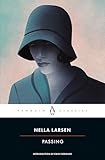 Passing by Nella Larsen
Passing by Nella Larsen
An on-looker, Irene reflected, would have thought it a most congenial tea-party, all smiles and jokes and hilarious laughter.
Passing, Larsen’s classic Harlem Renaissance novella about a black woman passing herself off as white, is a case study of one woman’s struggle to manage impressions. But Larsen’s prose, as this sentence shows, is also furiously managing the reader’s impressions. The unidentified “on-looker” here is clearly us, Larsen’s reader. And who are we? A paragraph earlier, a party guest announced that the one thing he would never abide in his wife is any hint of racial taint. “I draw the line at that,” he said. “No niggers in my family. Never have been and never will be.” We, the smiling on-looker, not only see this as “most congenial” tea-party chatter, but apparently find it “hilarious.”
But we are also, as Larsen’s grammar makes clear, blind to everything that matters. The sentence seems to focus on the on-looker and what he or she thinks of the party, but the heart of the sentence, the only active part of it, is Irene sitting off to one side watching and reflecting. She is, in this sentence as in the novella as a whole, hidden in plain sight, tucked away in an independent clause that seems to carry no grammatical weight, but in fact governs the whole sentence. Why would we, the clueless on-lookers, be fooled into thinking this was merely another “congenial tea-party” full of other happy, socially prominent white folks like ourselves? Because Irene quietly, invisibly, at the cost of great mental strain, has used all her good manners and finishing-school diction to make it appear that way.

